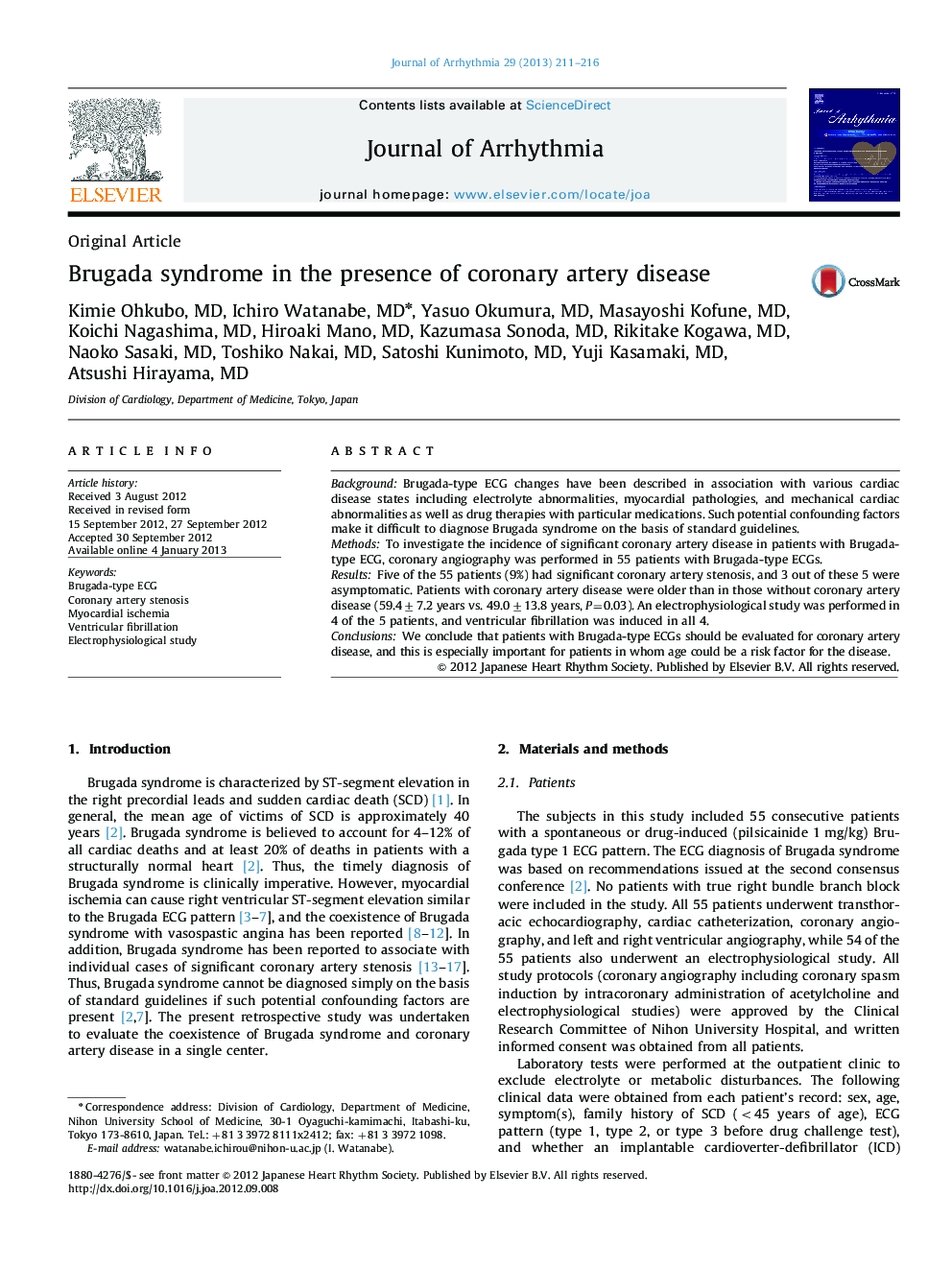| Article ID | Journal | Published Year | Pages | File Type |
|---|---|---|---|---|
| 2957874 | Journal of Arrhythmia | 2013 | 6 Pages |
BackgroundBrugada-type ECG changes have been described in association with various cardiac disease states including electrolyte abnormalities, myocardial pathologies, and mechanical cardiac abnormalities as well as drug therapies with particular medications. Such potential confounding factors make it difficult to diagnose Brugada syndrome on the basis of standard guidelines.MethodsTo investigate the incidence of significant coronary artery disease in patients with Brugada-type ECG, coronary angiography was performed in 55 patients with Brugada-type ECGs.ResultsFive of the 55 patients (9%) had significant coronary artery stenosis, and 3 out of these 5 were asymptomatic. Patients with coronary artery disease were older than in those without coronary artery disease (59.4±7.2 years vs. 49.0±13.8 years, P=0.03). An electrophysiological study was performed in 4 of the 5 patients, and ventricular fibrillation was induced in all 4.ConclusionsWe conclude that patients with Brugada-type ECGs should be evaluated for coronary artery disease, and this is especially important for patients in whom age could be a risk factor for the disease.
